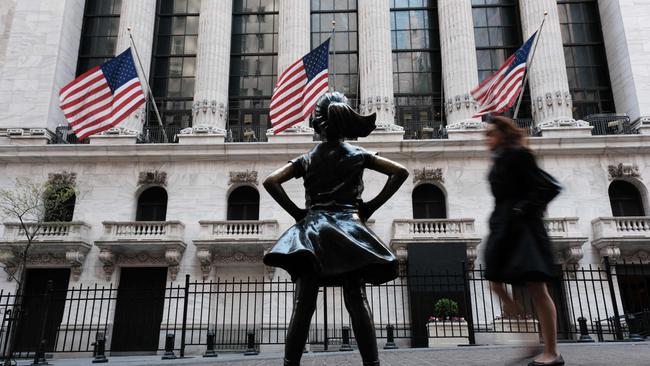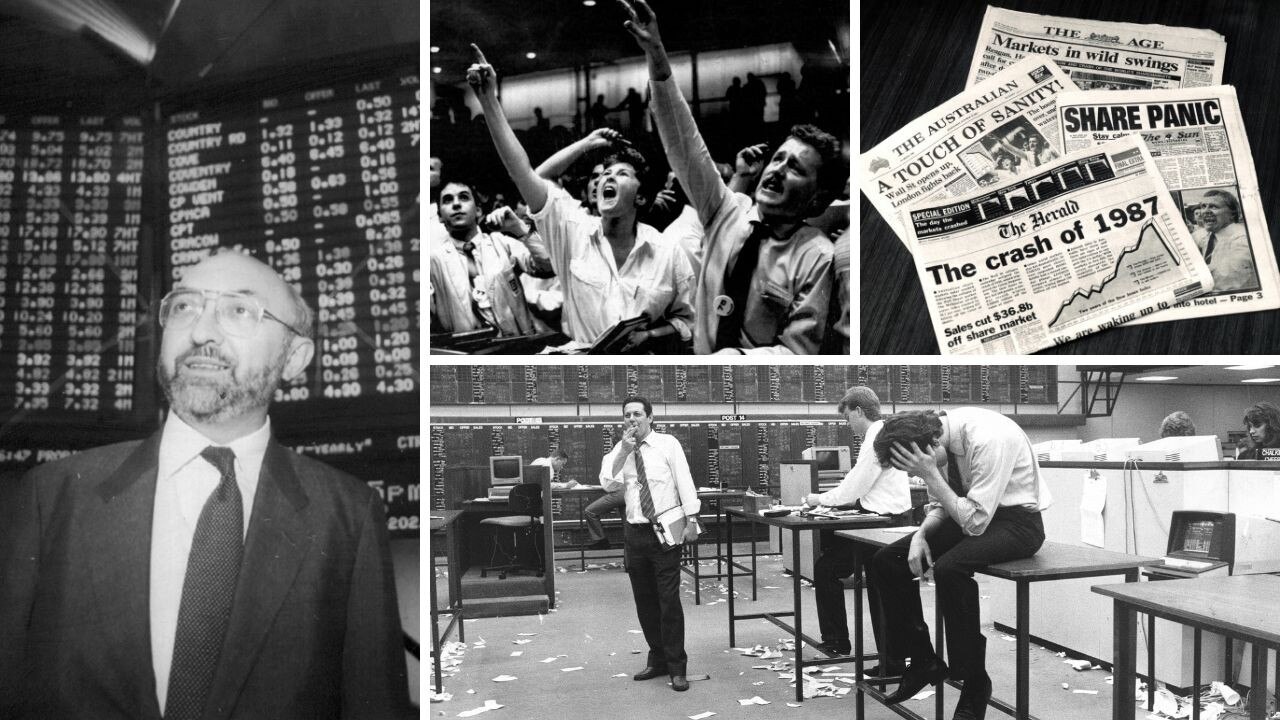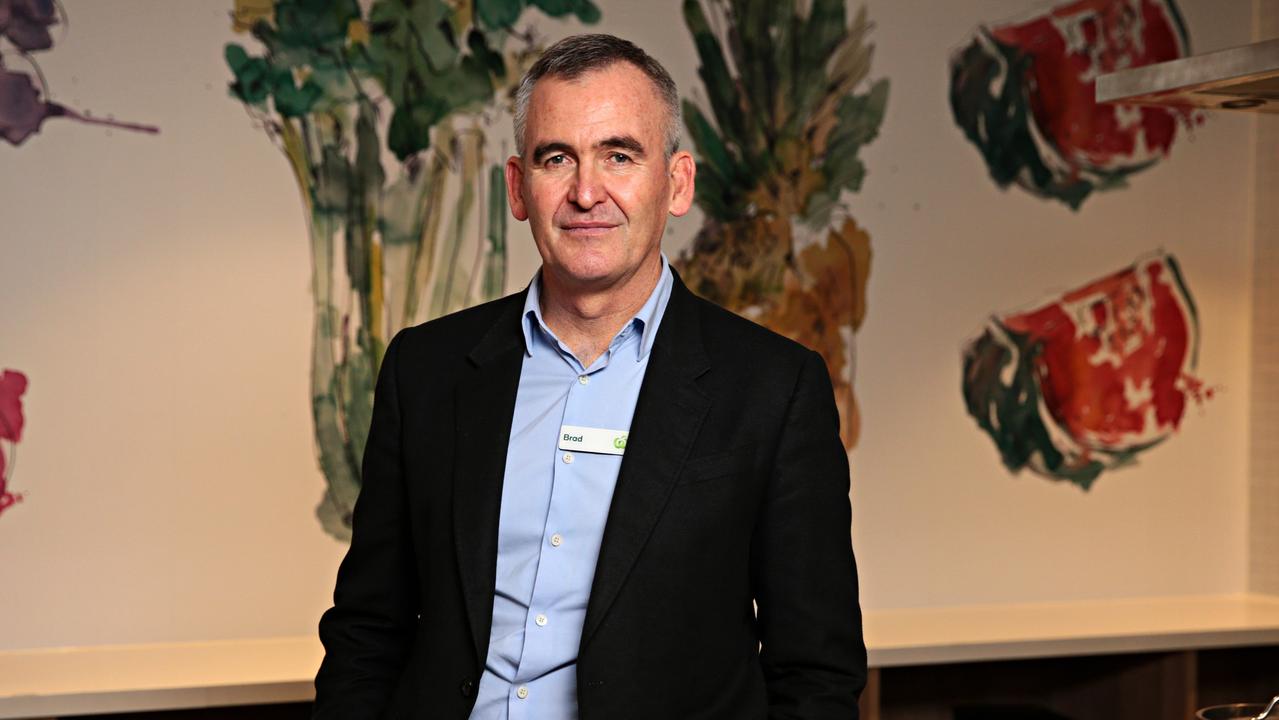Be alert not yet alarmed as shares head lower
What we are seeing in the US is a growing realisation, with real-world consequences, that the ‘Goldilocks scenario’ maybe ain’t going to be happening.

Terry McCrann
Don't miss out on the headlines from Terry McCrann. Followed categories will be added to My News.
Did the end of the world – the financial and investment world, that is – arrive overnight Tuesday from across the Pacific?
And most people didn’t, well, actually notice?
The short answer is: no.
The longer answer is: get some perspective.
Wall St dropped by barely 1 per cent. It’s only 7 per cent below its recent peak in July. It’s still up 10 per cent on where it was a year ago.
You want me to show you a share market crash?
Try October 19 1987 when the Dow dropped 22.6 per cent in a single day!
Or the GFC when it more than halved through 2008. Only of course to then spring right back, and is now five times what it dropped to.
And much the same applies to our market.
Or, in more recent times, Covid. Over March 2020, the Dow plunged 18 per cent.
That was after, I might note, the Dow had started the month by leaping 5 per cent in a single day. Covid? What’s that? No problem for us, we’re Americans; it’s just an issue for the Chinese.
What we are seeing in the US – and it replays into our entirely derivative market – is a growing realisation, with real-world consequences, that the ‘Goldilocks scenario’ (on steroids) maybe ain’t going to be happening
This was, simply, that the Fed would move to start cutting interest rates; while simultaneously, sustained strength in the economy would deliver strong corporate earnings.
That would be a combination that would make stocks look cheap versus bonds.
Now, there’s a growing realisation that while emerging reality is not quite as negative as the anti-Goldilocks scenario – even higher rates and battered profits - it is likely to be more ‘complicated’.
Earnings haven’t been quite so great; but far more potently the Fed is going to keep rates high, probably all the way through 2024 absent a real implosion.
The same goes for Australia, as I have been arguing for some time.
No, new governor, Michele Bullock, mightn’t - probably – won’t be quick to pull the rate lever. And a word to those economists, desperately wanting to pick a Cup Day rate hike, take a pill; a chill pill.
In due course – after the September quarter CPI – I’ll tell you whether there is any prospect.
But again, there’s a belated, growing understanding that our RBA’s rates are likely to stay high all through 2024.
And, I would add. If they are cut, it will be even worse news: it will signal an economy in the toilet.
Now, none of this is to suggest we are entering a ‘Golden Era’ of unbounded prosperity.
The world is awash – and I mean, Global Warming-driven melted ice-caps awash – with too much debt. Government, corporate, banks, and individuals.
Indeed, think of your own debt; and then think of the US Federal Government debt of $US33 trillion ($53 trillion ) and rising.
Makes our own less than $1trillion federal debt- even Victorian treasurer Tim Pallas’s $200bn – look like petty cash.
A reckoning is a’coming.
But, just as it has been for at least 30 years.
And don’t get me started on the China mega-bubble.



